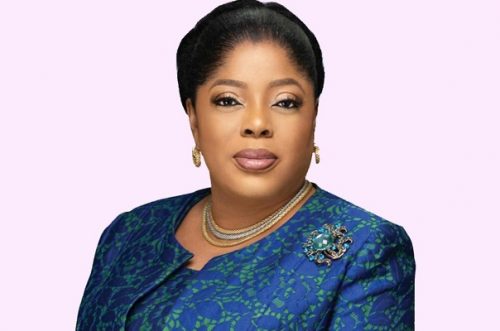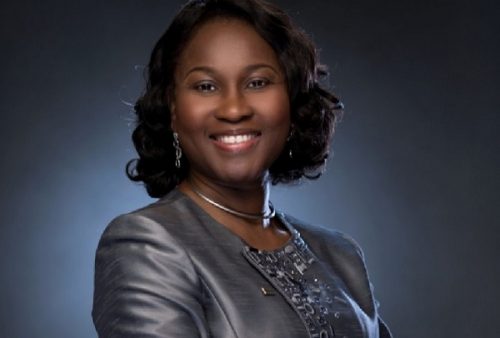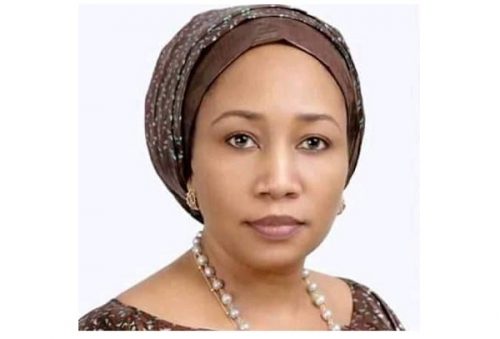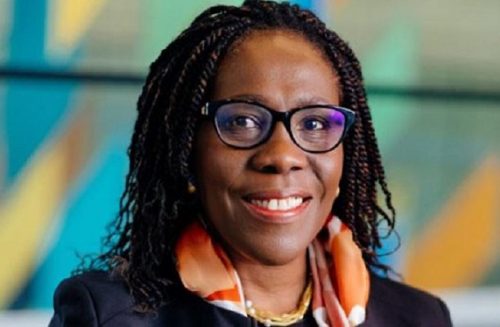How women are blazing the trail in Banking sector

The Banking sector is gradually experiencing a transformation that is seeing more women assuming top echelon positions. In this report, Philip Clement examines the profile of these women and the impact it will have on the industry
The Banking sector is usually regarded as one the critical sectors in Nigeria due to its relevance in digital transformation and creativity.
Over the years, the sector has experienced successive leadership dominated by the male folk in both tier 1 banks and other financial institutions in the country.
However, the trend is currently changing as the new order now creates a pavilion for more women to assume top leadership and decision making positions in the industry.
This movie has been hailed by industry experts who have attributed the successes to the dynamic leadership of the Central Bank Governor, Mr. Godwin Emefiele, who has consistently advocated for gender balance in Bank’s leadership positions.
The Daily Times brings the profile of six Bank CEOs who are currently rearing to reposition their respective bank’s for growth.
These women rose through the ranks to their current positions. They are:
Nneka Onyeali-Ikpe, FIDELITY BANK
Nneka Onyeali-Ikpe resumed office as managing director/chief executive officer, Fidelity Bank on January 1, 2021. She is the pioneer female to occupy the position since the bank’s inception in 1988.
She joined the bank in 2015 and was the former executive director for Lagos and south-west directorate, overseeing the bank’s business in the six states that make up the southwest region of the bank.

Nneka Onyeali-Ikpe
She holds Bachelor of Laws (LLB) degree from the University of Nigeria, Nsukka; a master of laws (LLM) degree from Kings College, London; and has attended executive training programmes at global institutions including Harvard Business School;
The Wharton School University of Pennsylvania; INSEAD School of Business; Chicago Booth School of Business; London Business School and IMD.
Miriam Olusanya, GTBANK
Only last week, Miriam Olusanya was appointed as the new managing director of Guaranty Trust Bank (GTBank). She becomes the first ever female boss in the bank’s 31-year history.
Olusanya now takes over from Segun Agbaje, the erstwhile MD, who moved into a new role as the group CEO of the Guaranty Trust Holding Company Plc.

Miriam Olusanya
Prior to her appointment, Olusanya was an executive director at GTBank, a position she occupied since 2018 after a successful period as the group treasurer/head, wholesale banking division.
She joined the financial institution as an executive trainee and gradually rose through the ranks over the years.
Miriam Olusanya holds a bachelor’s degree in pharmacy from the University of Ibadan and a Master of Business Administration (MBA), majoring in finance and accounting, from the University of Liverpool.
Yemisi Edun, FCMB
Yemisi Edun is currently the managing director of First City Monument Bank Limited (FCMB).
She becomes the first female MD of FCMB, following the approval of her appointment by the Central Bank of Nigeria (CBN).
Edun hitherto served as the acting managing director of the bank, a role she embraced after working as the bank’s executive director/chief financial officer.

Yemisi Edun
Yemisi Edun holds a bachelor’s degree in Chemistry from the University of Ife, Ile-Ife and a master’s degree in international accounting and finance from the University of Liverpool, United Kingdom.
She is a fellow of the Institute of Chartered Accountants of Nigeria and a certified financial analyst, CFA® Charter holder.
She is also an associate member of the Chartered Institute of Stockbrokers; an associate member of the Institute of Taxation of Nigeria; a member of Information Systems Audit and Control, U.S.A, and a certified information systems auditor.
Halima Buba, SUNTRUST
In January 2020, Halima Buba was appointed as the new managing director/chief executive officer of SunTrust Bank.
She is a seasoned banker with over 20 years cognate experience obtained from working in Allstates Trust Bank, Zenith Bank, Inland Bank Plc, Oceanic Bank Plc and Ecobank Nigeria Limited.

Halima Buba
She holds a Bachelor of Science (B.Sc.) degree in Business Management from the University of Maiduguri and an MBA from the same university.
Buba is an alumnus of the Lagos Business School senior management programme.
She is a senior honorary member of the Chartered Institute of Bankers and a fellow of the Institute of Management Consultants.
She sits on the board of several reputable institutions, including those of the Nigerian Sovereign Investment Authority (NSIA) as a nonexecutive director and Anchoria Asset Management Company Limited.
Ireti Samuel-Ogbu, CITIBANK
Ireti Samuel-Ogbu assumed office as the MD/CEO of Citibank Nigeria Limited, a subsidiary of Citigroup, in September 2020.
She is the first woman appointed to the lender’s top post in Nigeria after 36 years of operating in the country.

Ireti Samuel-Ogbu
Prior to assuming office in Nigeria, she was the head of payments and receivables, treasury and trade solutions (TTS) for Europe, Middle East and Africa (EMEA) at Citi’s Institutional Clients Group (ICG) based in London, UK.
In the last 32 years, Samuel-Ogbu has held various roles across Citi’s businesses in the UK, Nigeria and South Africa, having worked in each of these countries twice.
Previous roles have included relationship management with Global Subsidiaries Group and the Public Sector Banking Team, as well as TTS sales, corporate finance and leading Citi’s TTS business in two of the largest markets in Africa.
Tomi Somefun, UNITY BANK
In August 2015, Tomi Somefun was appointed as MD/CEO of Unity Bank Plc.
She is a career professional with over 35 years post qualification experience, 26 of which were in the banking sector spanning key segments such as treasury & investment banking, corporate banking, retail and commercial banking operations.

Tomi Somefun
Prior to her appointment as MD, she serve0d as the executive director overseeing the Lagos and southwest business directorates, the financial institution division and treasury department of the bank.
She is an alumnus of the Columbia Business School, United States of America, and INSEAD, Fontainebleau, France, and holds a certificate of management excellence from Harvard Business School (HBS).
She is a member of various professional bodies including the Institute of Directors (IOD), Bank Directors Association of Nigeria (BDAN) and Chartered Institute of Bankers of Nigeria (CIBN).
Emefiele’s pragmatic reforms spurring women to bank’s leadership positions
No doubt, the advocacy and dynamic leadership provided by the current governor of the Central Bank of Nigeria, Mr. Godwin Emefiele has been described as one of the pillars of the current transformation in women leadership in Nigeria’s banking sector.
Only recently, Mr. Emefiele had challenged stakeholders most especially in the banking sector to ensure all-round gender development and equal opportunities, in order to increase the number of women in leadership positions in Nigeria and across the world.
READ ALSO: Afreximbank, Portugal partner to promote Africa’s fashion
Declaring open the webinar that featured a paper titled: “Positioning Women for Leadership in a Changing World,” the Governor restated the commitment of the apex bank to continually promote gender diversity in the workplace, empower women and increase their active participation in the economy.
According to Emefiele, the CBN recognised the potential of female leaders in different organisations and the Nigerian economy at large, hence it ensured equal opportunities for both male and female staff across every cadre.
He also cited the CBN/Bankers’ Committee affirmative action on 40 percent and 30 percent representation for women in top management and Boards of Deposit Money Banks (DMBs), respectively.
While identifying unequal access to education, healthcare, finance and cultural barriers with gender stereotyping as some of the barriers limiting the participation of women in leadership, the CBN Governor also listed policies of the Bank that had afforded women access to finance to improve their lot.
Emefiele, therefore, stressed the need to have appropriate policies in place in addition to making the right investments in programmes and services to promote women’s leadership and gender parity in order to enable them to contribute to the economy.
This is even as he noted that there was overwhelming evidence that organisations with a high level of female participation fared better than others.








